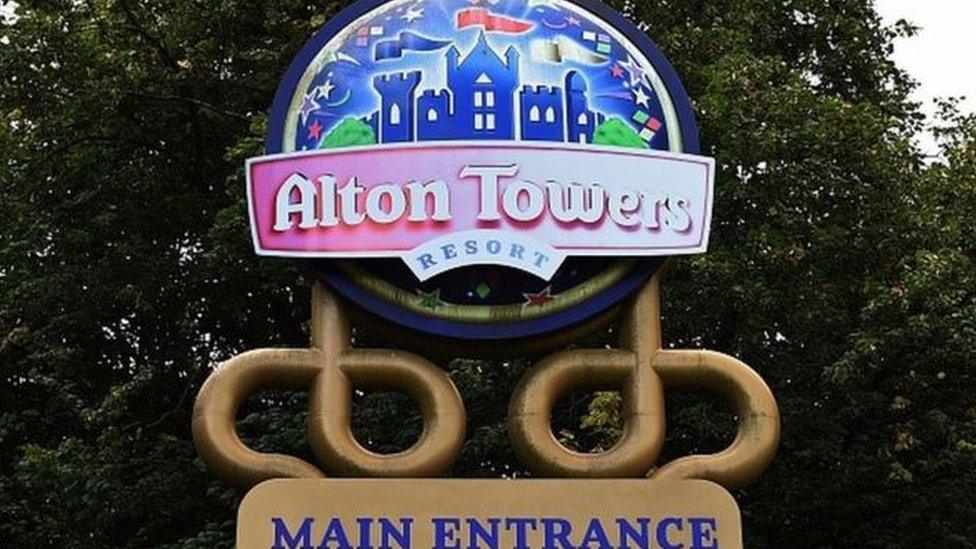Coronavirus: 'It is a worrying time to be running a zoo'
- Published
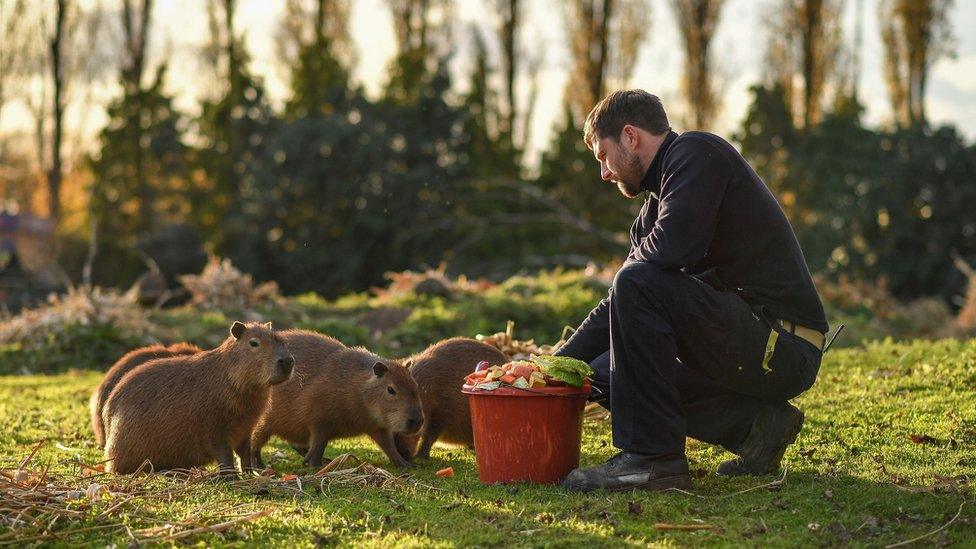
Zoo keepers cannot work from home during the coronavirus lock down
Keepers have been isolating near animals in zoos as attractions have had to bring in measures to care for their creatures amid the coronavirus crisis.
While many workplaces have reduced business, animals still need the same level of care despite zoos, aquariums and safari parks closing to visitors.
At Twycross Zoo in Leicestershire, some keepers have been staying on site.
Meanwhile, at Birmingham's Sealife Centre staff were storing salt in case shipments of seawater were stopped.
Weeks ago, Twycross Zoo began implementing social distancing measures for staff and stocking up on dry feed and bedding.
But the unknown length of the shutdown would make planning difficult, explained its chief executive Dr Sharon Redrobe.
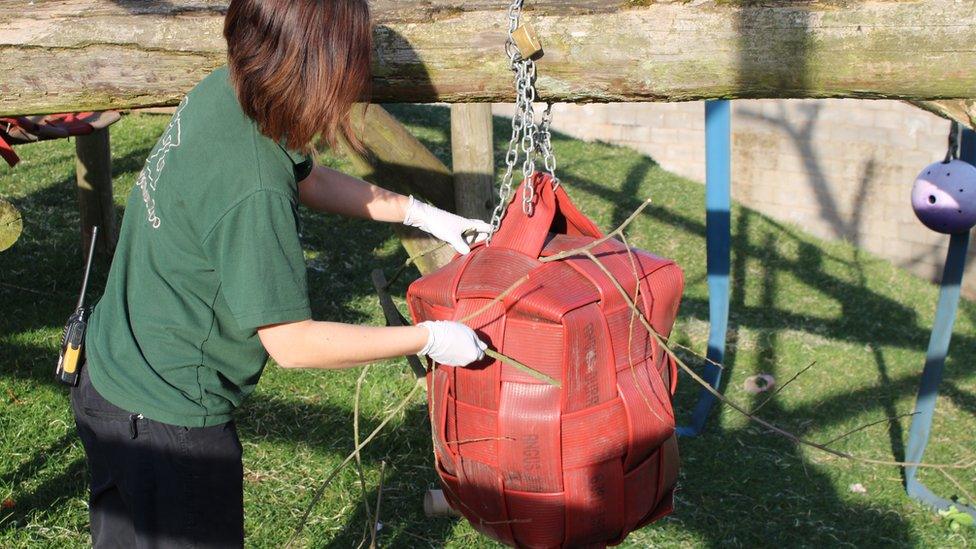
Animals at Twycross Zoo are getting "extra enrichment" activities while the guests are away, said Dr Sharon Redrobe
"We all have contingency plans in case of snow which means we are closed for a week and we had to do that the year before last," she said.
"A number of years ago we were shut for a few weeks for foot and mouth disease.
"But this is a whole different ball game, we are shut but don't know when it is likely we can reopen so it is difficult to plan for, apart from saving as many costs as possible.
From April, some if its staff will be "furloughed", with only key keepers, vets and a small maintenance crew working.
"Then we have to have a view about when it is safe to reopen or when we reopen, whether people will be willing or too scared to come out, or if we will be in a recession and will people be able to afford to come out," Dr Redrobe said.
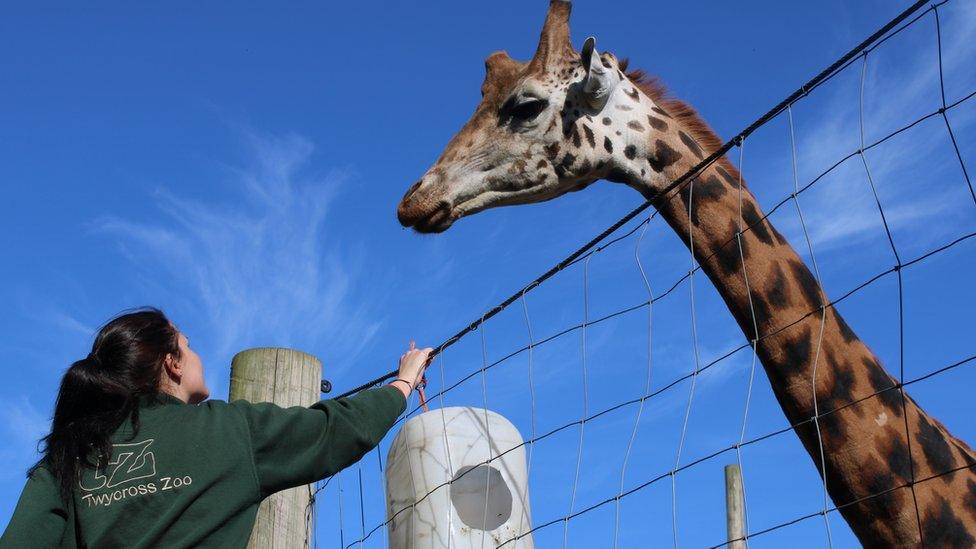
Some keepers are now living on site at Twycross
"Our message to all our staff is that we are going into a little period of sleep and we do have a wake up plan so we need to be able to bounce back and be ready to welcome visitors back."
She also praised the dedication of its keepers, who had so far continued to work throughout the lockdown.
And, according to the zoo's head of life sciences Matyas Liptovsky, the commitment shown by staff had extended to some keepers living on site.
"They have proper accommodation at the far end of the site, further away from the animals, and they are not working with the animals overnight but they are ready for every eventuality," he said.
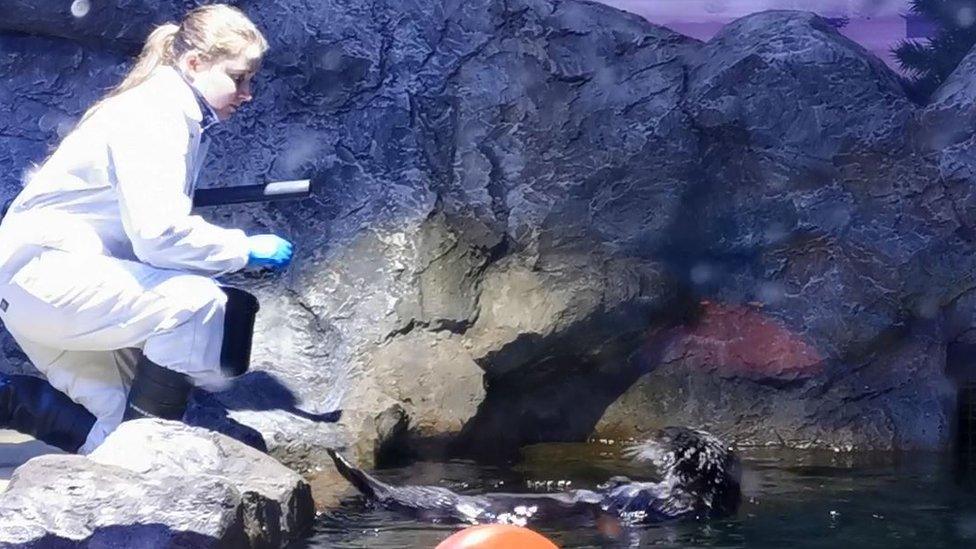
The Sea Life Centre's sea otters, Ozzy and Ola, still need feeding five times a day, said Jonny Rudd
Birmingham's Sea Life Centre relies on tankers of water being brought up from the south coast to provide a natural environment for its aquatic inhabitants.
It has stored salt so it can mix its own sea water if those deliveries become impossible, said curator Jonny Rudd.
Its staff are working four day on and four day off shift patterns, with a deep clean between changeovers, to make sure there were enough people to continue caring for the animals.
"It is business as usual but we really miss seeing people already, it is odd being in the building without guests," Mr Rudd said.
"The team are so dedicated, they are not worried about getting sick but what they will do if they can't work.
"The whole industry is dedicated to its animals and making sure everyone is getting the care they need."
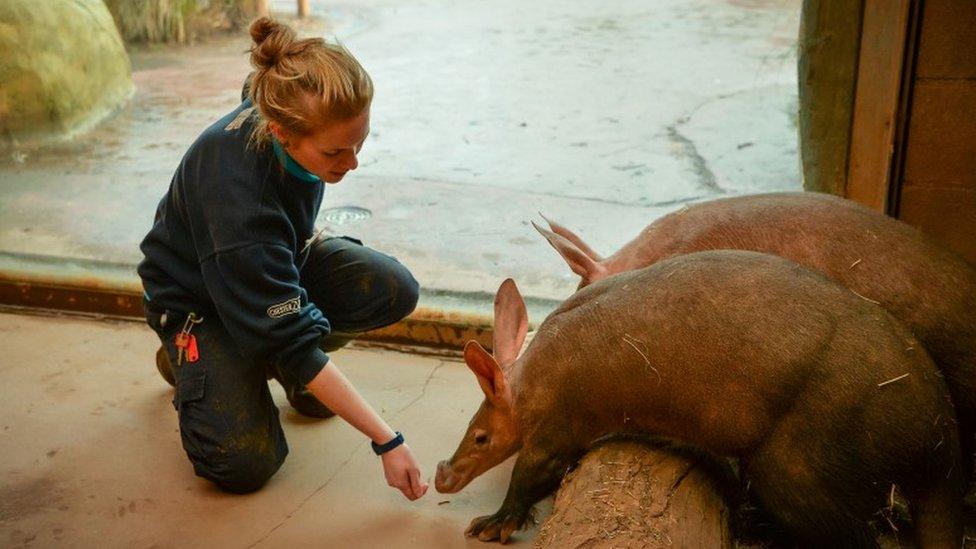
Chester Zoo had to ensure it had enough specialist staff members to look after its animals
On Friday, Chester Zoo welcomed people to see its animals through a live feed on its Facebook page.
Mark Pilgrim, its CEO, said: "Many businesses can kind of 'shut down', furlough staff and mothball at very little cost.
"Although we can furlough some staff, the costs of heating and feeding the animals are big but we have zero income."
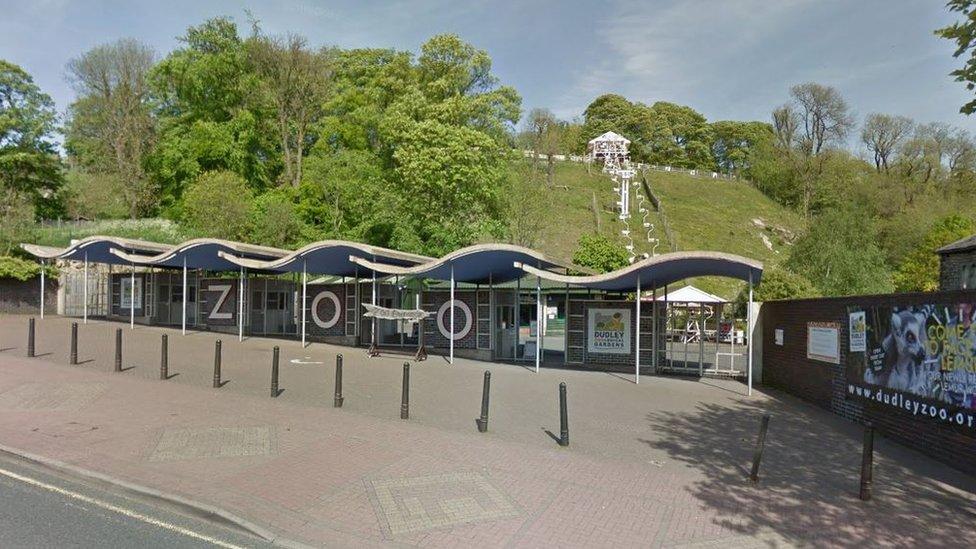
All the zoos, including Dudley, are currently closed and do not yet know how long for
Dudley Zoo director Derek Grove said the amount of space at the attraction meant it initially hoped to keep its outdoor exhibits open but it had since been forced to close entirely.
"All the basic normal functions of the zoo carry on as if the was zoo open but we might not clean windows or sweep the roads as often as if we had visitors," he said.
Like many zoos, Dudley operates as a charitable organisation, which Mr Grove said meant it was limited in how much money it could keep in reserves. It has launched a fundraising page to try to generate donations to support its work while the gates are shut.
"We were quite pleased, when we shut, with the amount of positive comments from people saying they look forward to when we are open," he said.
"Hopefully when we can open up, we can move on."

A SIMPLE GUIDE: What are the symptoms?
NEW GUIDANCE: What must I do?
NEW RESTRICTIONS: What are they?
LOOK-UP TOOL: Check cases in your area
MAPS AND CHARTS: Visual guide to the outbreak

Follow BBC West Midlands on Facebook, external, on Twitter, external, and sign up for local news updates direct to your phone, external.
- Published1 April 2020
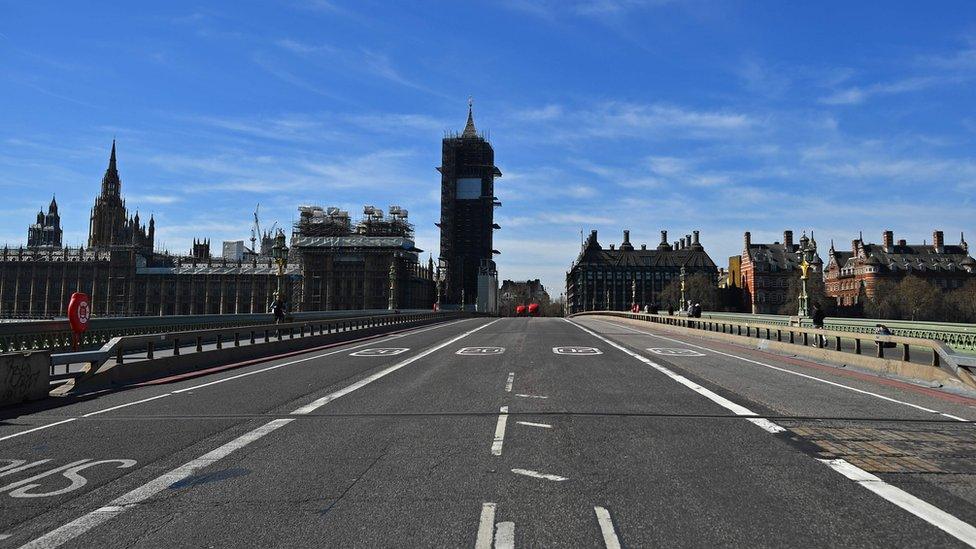
- Published25 March 2020
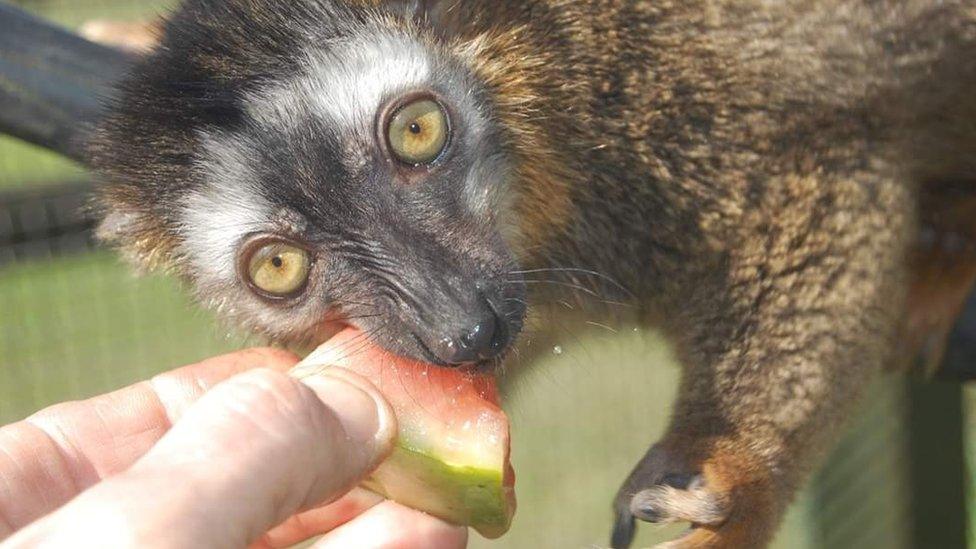
- Published20 March 2020
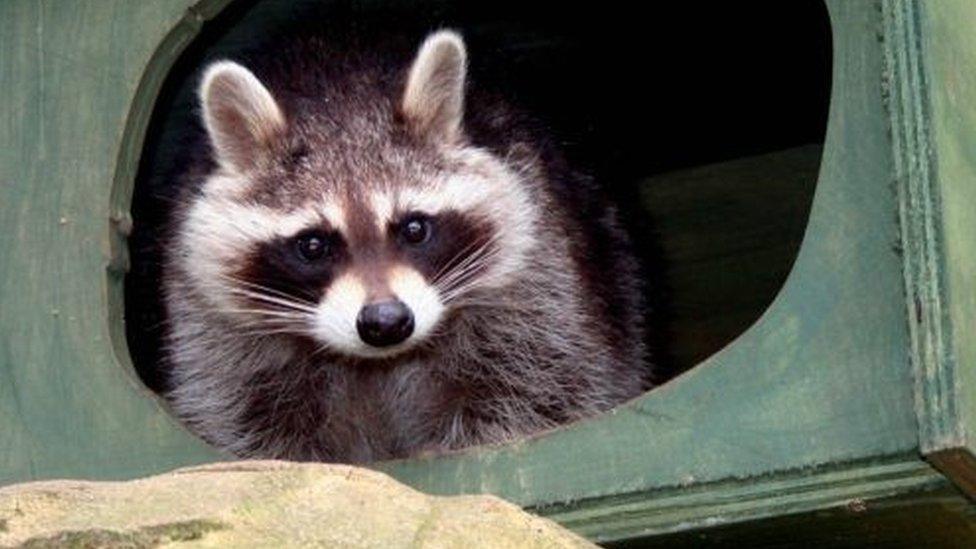
- Published18 March 2020
